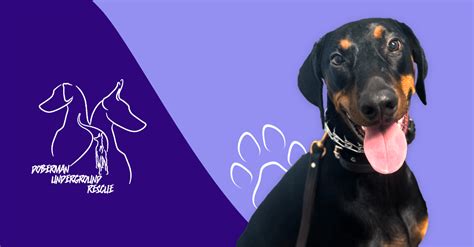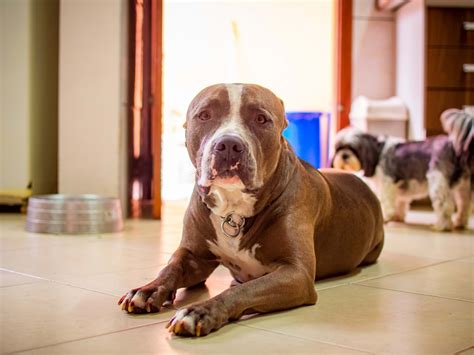
A Doberman pinscher named Rico has been lauded online for his theatrical reaction to a mere six-minute delay in his dinner, earning him the mock title of a “drama king” and sparking amusement across social media platforms.
Rico, owned by TikTok user @ricothebullybreed, showcased his dramatic flair in a video that has since gone viral, amassing millions of views and prompting an outpouring of humorous comments. The clip captures Rico’s elaborate display of discontent, featuring exaggerated sighs, mournful stares, and an overall demeanor suggesting utter despair over the slight postponement of his meal.
“He is the most dramatic dog I have ever met,” his owner stated in the video, encapsulating the sentiment shared by many viewers. The video’s caption read, “POV you made your Doberman wait 6 minutes for his dinner,” further emphasizing the seemingly minuscule nature of the delay relative to Rico’s outsized reaction.
The incident highlights the often-endearing quirks of pets and the capacity for animals to exhibit behaviors that mirror human emotions, albeit sometimes in an exaggerated fashion. It also underscores the significant role pets play in providing entertainment and companionship, particularly through the sharing of amusing anecdotes and videos on social media.
Rico’s performance, while humorous, also offers a glimpse into the Doberman breed’s temperament and intelligence. Dobermans are known for their loyalty, alertness, and trainability, but also for their sensitivity and propensity to form strong bonds with their owners. This close connection can sometimes manifest as heightened reactions to perceived slights or changes in routine.
The viral video has not only provided entertainment but has also sparked discussions about pet ownership, the importance of routine for animals, and the ways in which pets communicate their needs and emotions. It serves as a reminder of the unique and often comical relationships humans have with their animal companions.
Details of Rico’s Dramatic Display
The video opens with a close-up of Rico, whose face is a picture of dejection. His eyes are cast downward, and he emits a series of audible sighs that would be the envy of any seasoned thespian. As the camera pans out, it reveals that Rico is sitting patiently, albeit with an air of profound suffering, near his empty food bowl.
Throughout the video, Rico periodically glances at his owner with an expression that seems to convey a deep sense of betrayal. Each sigh is punctuated by a mournful whine, adding to the overall impression that he is enduring a hardship of epic proportions. The owner’s commentary further enhances the comedic effect, as she jokingly apologizes for the egregious delay and acknowledges Rico’s “Oscar-worthy” performance.
The video’s success lies in its relatability. Many pet owners can attest to the dramatic antics of their own animals, whether it’s a cat feigning starvation despite a full food bowl or a dog staging a protest over a curtailed walk. Rico’s over-the-top reaction resonates with viewers because it taps into the universal experience of witnessing pets express their emotions in ways that are both endearing and amusing.
Doberman Breed Characteristics
Doberman Pinschers are a breed known for their intelligence, alertness, and loyalty. Originally bred in Germany in the late 19th century by Karl Friedrich Louis Dobermann, they were intended to be guard dogs and companions. Dobermans possess a sleek, muscular build and a distinctive appearance, characterized by their short, black or brown coat and cropped ears and docked tail (though these practices are becoming less common due to ethical concerns).
Beyond their physical attributes, Dobermans are highly intelligent and trainable, making them well-suited for a variety of roles, including police work, search and rescue, and competitive obedience. They are also known for their protective instincts and their ability to form strong bonds with their families.
However, Dobermans can also be sensitive and require consistent training and socialization to ensure they develop into well-adjusted adults. They thrive on mental stimulation and can become bored or destructive if left to their own devices for extended periods.
Rico’s dramatic reaction to a delayed dinner may be partly attributed to the breed’s inherent sensitivity and its tendency to form strong attachments to its owners. Dobermans are often highly attuned to their owners’ routines and can become distressed by even minor disruptions.
Social Media Reaction
The video of Rico’s performance has generated a flurry of comments and shares across various social media platforms. Many users have praised Rico’s acting skills, while others have shared stories of their own pets’ dramatic antics.
“This dog deserves an Oscar!” one user commented. “My dog does the same thing if I’m even a minute late with his dinner,” another user shared.
The video has also sparked discussions about the ways in which pet owners anthropomorphize their animals, attributing human emotions and motivations to their behavior. While it is important to avoid projecting unrealistic expectations onto pets, many experts agree that animals are capable of experiencing a wide range of emotions, including joy, sadness, and frustration.
The popularity of Rico’s video underscores the significant role that pets play in people’s lives. Pets provide companionship, emotional support, and endless entertainment. Sharing stories and videos of pets on social media has become a popular way for pet owners to connect with one another and celebrate the unique bond they share with their animal companions.
The Importance of Routine for Pets
While Rico’s dramatic reaction may seem humorous, it also highlights the importance of routine for pets. Animals thrive on consistency and predictability, and changes in their daily schedule can cause stress and anxiety.
Feeding schedules, in particular, are often a source of concern for pets. Animals have internal clocks that regulate their hunger and digestion, and they come to expect meals at certain times of the day. When these expectations are not met, they may exhibit a variety of behavioral changes, including increased vocalization, pacing, and even aggression.
Pet owners can help minimize stress and anxiety by establishing a consistent daily routine that includes regular feeding times, exercise, and playtime. It is also important to provide pets with a safe and comfortable environment where they can relax and feel secure.
In Rico’s case, the six-minute delay in his dinner may have been perceived as a significant disruption to his routine, triggering his dramatic response. While it is unlikely that Rico was truly suffering from starvation, his reaction serves as a reminder of the importance of being mindful of pets’ needs and providing them with the consistency they crave.
Expert Opinions on Pet Behavior
Veterinarians and animal behaviorists emphasize that while it’s easy to find humor in pets’ dramatic behaviors, understanding the underlying cause is crucial. Often, such reactions stem from anxiety, boredom, or a need for attention.
Dr. Emily Weiss, a certified applied animal behaviorist, explains, “Dramatic displays can be a way for pets to communicate their needs. It’s essential to differentiate between playful antics and genuine distress. Look for other signs of anxiety, such as excessive panting, trembling, or hiding.”
She also notes that positive reinforcement can inadvertently encourage dramatic behaviors. “If a pet gets attention or treats after acting dramatically, they may learn to repeat the behavior. It’s better to reward calm and relaxed behavior.”
Dr. Mark Johnson, a veterinarian specializing in canine behavior, adds, “Routine is incredibly important for dogs, especially breeds like Dobermans that are prone to anxiety. Even small changes can disrupt their sense of security. While Rico’s reaction is amusing, it’s a good reminder to be consistent with feeding and other daily activities.”
Ethical Considerations of Viral Pet Videos
While viral pet videos like Rico’s can be entertaining, it’s essential to consider the ethical implications of sharing them. Animal welfare advocates caution against exploiting pets for online fame or encouraging behaviors that could be harmful.
“It’s important to ensure that pets are not being stressed or put in uncomfortable situations for the sake of a video,” says Sarah Thompson, a spokesperson for the Humane Society. “While most videos are harmless, some can inadvertently promote irresponsible pet ownership or perpetuate harmful stereotypes.”
She also emphasizes the importance of respecting pets’ privacy. “Just like humans, pets have a right to privacy. Before sharing a video, consider whether it could embarrass or humiliate the animal.”
In Rico’s case, the video appears to be lighthearted and does not depict any mistreatment or exploitation. However, it serves as a reminder to be mindful of the ethical considerations involved in sharing pet content online.
Conclusion
Rico the Doberman’s viral video serves as a lighthearted reminder of the unique and often comical relationships humans have with their animal companions. His dramatic reaction to a minor delay in his dinner has resonated with millions of viewers, highlighting the endearing quirks of pets and the power of social media to connect people through shared experiences.
While Rico’s performance is undoubtedly amusing, it also underscores the importance of understanding pet behavior, providing consistent routines, and being mindful of the ethical considerations involved in sharing pet content online. Ultimately, Rico’s story is a testament to the joy and companionship that pets bring to our lives. His over-the-top reaction to a slight inconvenience has turned him into an internet sensation, proving that even a six-minute delay can be the catalyst for viral fame. The incident provides a glimpse into the sensitivity and unique personality of Dobermans while also offering a moment of levity in the often-serious world of online content. Rico’s brief moment of “suffering” has brought smiles to faces around the globe, reaffirming the special place pets hold in our hearts and on our screens.
Frequently Asked Questions (FAQ)
1. Why did Rico, the Doberman, react so dramatically to a six-minute delay in his dinner?
Rico’s dramatic reaction is likely due to a combination of factors. Dobermans are known for their sensitivity and their strong attachment to their owners and routines. Even a minor disruption to his expected feeding schedule could have caused him stress and anxiety, leading to the exaggerated display seen in the video. Additionally, some experts suggest that such behaviors can be inadvertently reinforced if the pet receives attention or treats after acting dramatically. Rico may have learned that expressing his discontent results in a quicker meal or extra attention.
2. Is it normal for Dobermans to be so dramatic about meal times?
While not all Dobermans will react as dramatically as Rico, the breed is known for its sensitivity and intelligence. They thrive on routine, and disruptions can cause anxiety. Their strong bond with their owners can also lead to heightened reactions to perceived slights or changes in their established schedules. Some Dobermans may exhibit similar behaviors, such as whining, pacing, or staring intently at their owners, when meal times are delayed. Individual personality and past experiences also play a role in how a Doberman reacts to changes in routine.
3. What can pet owners do to prevent their pets from becoming overly dramatic about food or other routines?
To prevent dramatic behaviors, establish a consistent daily routine that includes regular feeding times, exercise, and playtime. Avoid reinforcing dramatic behavior by only providing attention or treats when the pet is calm and relaxed. If a pet exhibits signs of anxiety, such as excessive panting or trembling, consult with a veterinarian or animal behaviorist to address the underlying cause. Positive reinforcement training can also help teach pets to cope with changes in routine and to express their needs in a more appropriate manner. Ensure that the pet has a safe and comfortable environment where they can relax and feel secure.
4. Are there any ethical considerations involved in sharing videos of pets online, like the video of Rico?
Yes, there are several ethical considerations to keep in mind when sharing videos of pets online. It’s important to ensure that the pet is not being stressed, exploited, or put in uncomfortable situations for the sake of a video. Avoid encouraging behaviors that could be harmful or perpetuate negative stereotypes about the breed. Respect the pet’s privacy and consider whether the video could embarrass or humiliate the animal. Obtain consent from all individuals involved, especially if the video includes other people. Be mindful of the potential for the video to be used for unintended purposes and take steps to protect the pet’s identity and safety.
5. How can pet owners balance the entertainment value of sharing pet videos with the responsibility of ensuring their pet’s well-being?
Balancing entertainment with responsibility requires careful consideration. Before sharing a video, assess whether it could cause the pet any stress, discomfort, or harm. Prioritize the pet’s well-being above the potential for viral fame or social media attention. Ensure that the video is not promoting irresponsible pet ownership or perpetuating negative stereotypes. Use humor responsibly and avoid making the pet the subject of ridicule or mockery. Be transparent about the circumstances surrounding the video and provide context to prevent misunderstandings. Monitor the comments and feedback received on the video and address any concerns or criticisms promptly. If necessary, remove the video if it is causing the pet distress or generating negative attention. Consult with a veterinarian or animal behaviorist if you are unsure whether a particular video is appropriate to share. Ensure the pet’s basic needs are met (food, water, shelter, vet care) and that the pet is happy and healthy.
6. What are the potential benefits of sharing pet videos on social media?
Sharing pet videos can have several benefits. They can bring joy and entertainment to viewers, offering a positive and lighthearted distraction from daily stressors. Pet videos can also raise awareness about animal welfare issues and promote responsible pet ownership. They can connect pet owners with one another, creating a sense of community and providing opportunities for sharing tips, advice, and support. Viral pet videos can sometimes lead to increased adoption rates at animal shelters and rescues. Finally, sharing pet videos can be a fun and creative outlet for pet owners, allowing them to express their love and appreciation for their animal companions.
7. What are some key characteristics that define the Doberman Pinscher breed?
Doberman Pinschers are known for their intelligence, alertness, and loyalty. They are a medium to large-sized breed with a sleek, muscular build and a distinctive appearance. They typically have a short, black or brown coat, and traditionally have cropped ears and a docked tail (although these practices are becoming less common). Dobermans are highly trainable and excel in various roles, including guard dogs, police work, and competitive obedience. They form strong bonds with their families and are protective of their loved ones. They require consistent training and socialization to develop into well-adjusted adults.
8. How does routine impact a dog’s behavior, particularly in breeds like Dobermans?
Routine is crucial for a dog’s well-being, especially for breeds like Dobermans known for their sensitivity and intelligence. A consistent daily schedule provides a sense of security and predictability, reducing stress and anxiety. Dogs rely on routine to regulate their internal clocks and anticipate events, such as meal times, walks, and playtime. Disruptions to the routine can cause confusion and distress, leading to behavioral changes such as increased vocalization, pacing, or even aggression. For Dobermans, who are particularly attuned to their owners’ routines, even minor changes can have a significant impact on their behavior. Maintaining a consistent routine helps ensure that the dog feels safe, secure, and happy.
9. How do you differentiate between playful antics and genuine distress in a pet’s behavior?
Distinguishing between playful antics and genuine distress requires careful observation and understanding of the pet’s body language and behavior. Playful antics are typically characterized by relaxed body posture, wagging tail, and playful vocalizations, such as barks or yips. Genuine distress, on the other hand, may manifest as tense body posture, tucked tail, flattened ears, dilated pupils, excessive panting, trembling, or hiding. Other signs of distress include changes in appetite, sleep patterns, or elimination habits. If you are unsure whether your pet is experiencing distress, consult with a veterinarian or animal behaviorist for guidance. It is always better to err on the side of caution and address any potential concerns promptly.
10. What role does positive reinforcement play in shaping a pet’s behavior, particularly in relation to dramatic displays?
Positive reinforcement plays a significant role in shaping a pet’s behavior. It involves rewarding desired behaviors with positive stimuli, such as treats, praise, or attention, making it more likely that the pet will repeat those behaviors in the future. However, positive reinforcement can also inadvertently encourage undesirable behaviors, such as dramatic displays. If a pet receives attention or treats after acting dramatically, they may learn that this behavior is an effective way to get what they want. To avoid reinforcing dramatic displays, it is important to only reward calm and relaxed behavior. Ignore or redirect the pet when they are acting dramatically and provide positive reinforcement when they are exhibiting the desired behavior. Consistency is key to success in shaping a pet’s behavior through positive reinforcement.









